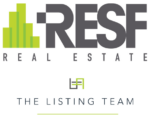If you’re preparing to get a home, knowing what to allocate and just how to save may appear intimidating– yet it does not have to be. One method to alleviate those worries is to make sure you understand some of the expenses you might experience in advance. And to do that, always turn to trusted real estate experts. They can help you set a plan and take a strategic consider your budget plan and your procedure before you also get started.
Below are just a couple of things professionals say you should be considering.
1. Deposit
Conserving for your depositis most likely top of mind as you set out to purchase a home. But do you understand how much you’ll require? While every buyer’s scenario is different, there’s a typical misconception that putting 20% of the acquisition cost down is called for. A post from the Mortgage Reports discusseswhy that’s not constantly the situation:
“The concept that you need to put 20% down on a residence is a misconception … The correct amount depends upon your existing cost savings and your home purchasing objectives.”
To understand your alternatives, companion with trusted realty experts to look at the different financing types, down payment assistance programs, and what each one needs. The more you recognize in advance, the simpler the procedure will be.
2. Closing Costs
See to it you likewise allocate shutting prices, which are a collection of charges and repayments made to the numerous celebrations associated with your purchase. Bankrate clarifies:
“Closing costs are the fees you pay when completing a property purchase, whether you’re refinancing a mortgage or purchasing a new home. These costs can amount to 2 to 5 percent of the mortgage so it’s crucial to be financially gotten ready for this expense.”
The most effective way to understand what you’ll require at the closing table is to collaborate with a trusted lender. They can supply you with solution to the questions you may have.
3. Earnest Money Deposit
If you wish to cover all your bases, you can likewise think about saving for a down payment deposit (EMD). An EMD is cash you pay as a show of good faith when you make a deal on a home. According to Realtor.com, it’s normally between 1% and 2% of the overall home price.
This deposit functions like a credit report. It’s not an added cost– it’s paying a portion of your costs in advance. You’re using some of the cash you’ve currently saved for your acquisition to show the vendor you’re dedicated and significant regarding buying their residence. Realtor.com explainsjust how it works as part of your sale:
“It tells the realty seller you’re in earnest as a buyer … Assuming that all goes well and the buyer’s good-faith deal is accepted by the vendor, the earnest money funds approach the deposit and closing prices. In effect, down payment is simply paying even more of the down payment and closing costs in advance.”
Keep in mind, an EMD isn’t called for, and it doesn’t ensure your offer will certainly be accepted. It’s important to collaborate with a property advisor to understand what’s ideal for your scenario and any details demands in your town. They’ll advise you on what actions you need to make so you can make the best possible decisions throughout the acquiring process.
Profits
When getting a home, being educated regarding what to conserve for is essential. Allow’s link so you’ll have a specialist in your corner to respond to any type of inquiries you have in the process.
